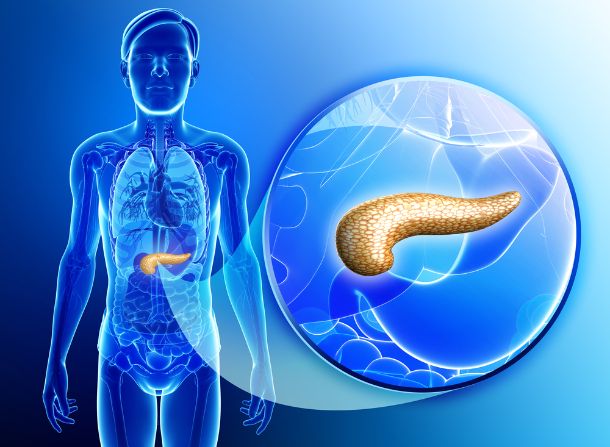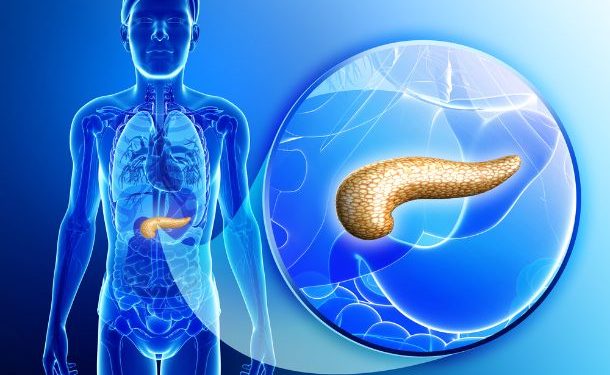The pancreas is a gland in your abdomen (belly) that produces digestive juices and hormones. These juices and hormones help break down food, fats, sugars, and proteins. The pancreas also releases digestive juices into the stomach and into a network of ducts that ultimately connect to the small intestine.
Digestive enzymes are made in two main parts of the pancreas – the exocrine pancreas and the endocrine pancreas. Each part plays an important role in the digestion of food.
Exocrine Pancreas
The exocrine pancreas produces digestive enzymes, such as amylase to digest carbohydrates and lipase to break down fats. These enzymes move through a network of ducts that eventually join the common bile duct and form the ampulla of Vater in the duodenum, the first part of the small intestine.
These enzymes break down food into tiny pieces that can be absorbed into the body through the small intestine. In addition to enzymes, the exocrine pancreas releases other chemicals that regulate the functioning of other organs and systems in your body, such as blood sugar levels, appetite, and stomach acid.
Glucagon and insulin are the main pancreatic hormones that control the blood sugar levels in your body. Islet cells – endocrine cells that sit inside the pancreas – produce these hormones. Insulin lowers the blood sugar level, while glucagon raises it.

Inflammation and inflammation-related diseases like cystic fibrosis, inflammatory bowel disease, and ulcerative colitis are some of the causes of acute pancreatitis. Some of these disorders are hereditary and may be passed on from one parent to a child.
Acute pancreatitis can occur if there is severe inflammation of the pancreas, or if it is caused by a problem with the duct that brings food from the pancreas to the small intestine (the bile duct). Your doctor will do an ultrasound or CT scan of your pancreas and may test your blood for levels of amylase and lipase, which indicate a problem with the duct that moves digestive juices out of the pancreas.
Cysts in the Pancreas
A common complication of acute pancreatitis is the presence of a fluid-filled sac called a pseudocyst in the pancreas. These cysts are usually benign, but can occasionally become infected or cause pain and discomfort. In some cases, a cyst becomes so large that it needs to be removed surgically, but this is very rare.
Pseudocyst treatment is usually observation with periodic imaging tests, such as x-rays and CT scans. These tests are less expensive and allow your healthcare provider to see if there is any change in the cyst, which might mean you need treatment sooner.
Chronic Pancreatitis
Constant inflammation in the pancreas leads to scarring of its tissues (fibrosis). This prevents it from making the enzymes and hormones your body needs. The resulting symptoms are similar to those of acute pancreatitis.
Long-term pancreatitis often causes pain and a feeling of malaise, including depression. Managing your symptoms can be difficult, but you can work with your health care team to get a treatment that works for you.









